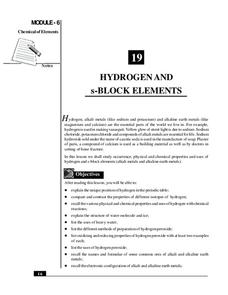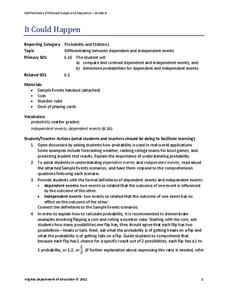Curated OER
Why Do Governments Exist? Locke, Hobbes, Montesquieu, and Rousseau
Here is a great secondary source reading that includes the primary ideas and philosophies of the famed Enlightenment philosophers: Thomas Hobbes, John Locke, Charles Montesquieu, and Jean-Jacques Rousseau. In additional to discussing...
American Forest Foundation
Who Speaks for the Trees?
Help young conservationists appreciate the important role that trees play in ecosystems around the world with this collection of six engaging activities. From a shared reading and class discussion of Dr. Seuss' The Lorax, to in an depth...
National Institute of Open Schooling
Hydrogen and s-Block Elements
Lesson 19 in the series of 36 analyzes the element hydrogen and the s-block elements. Through readings, answering questions, and discussion, learners write about and explain their occurrence, physical and chemical properties, and uses.
iCivics
You've Got Rights!
If aliens invaders nearly destroy the world in the distant future and leaders must decide on a pamphlet of protections to preserve individual rights, what should they include? Introduce the Bill of Rights and the struggle between the...
iCivics
Drafting Board: Interest Groups
Does the influence of interest groups harm a political system? Your class members will analyze the role of interest groups in American politics, as well as consider the effect of perspective, bias, loyalty, and the First Amendment.
Virginia Department of Education
It Could Happen
Understanding of probability will probably increase with the use of a refined resource. Pupils learn to distinguish between dependent and independent events as they calculate the probabilities of these types of events in various situations.
Other popular searches
- Compare and Contrast Reading
- Compare/contrast in Reading
- Compare Contrast Reading
- "Compare and Contrast" Reading







